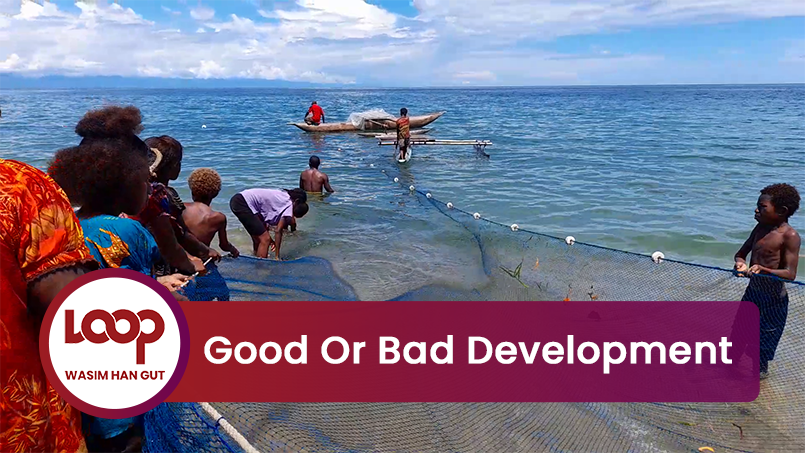
Development can be good or bad. What matters is its impact on people’s lives and the environment.
Environmental advocate, Jotham Keleino, is attached with the Evangelical Lutheran Church of PNG and has been supporting the church’s campaign against the proposed deep-sea tailings placement method.
Keleino, who has a Bachelor in Science degree, was recently speaking with Morobe tertiary students on the impacts of development, stressing on the need to look at the bigger picture.
He believes that money should not be used as a yardstick; instead, people’s lives and the environment should always be the focus of development.
“Mining is not new to Morobe Province,” he stated. “It is, in fact, about 100 years old – since 1920. And we are standing here in Bundun that is in Mumeng LLG. This is where the story of the Wau gold rush began.
“Every local people in this place are familiar with the story of gold and most of them are bad stories. We have legacy issues affecting people’s lives – both inland and down to the coast.”
Keleino said 102 years after the Wau gold rush and a national impact project is threatening the livelihood of Morobeans in the form of Wafi-Golpu’s DSTP method.
“Deep-sea tailings placement is not common around the world, firstly. Out of the about 3,000 gold and copper mines around the world, less than 15 utilise deep-sea tailings placement,” he outlined.
“And of the 15 that utilise deep-sea tailings placement, half of that occurred in one country only. Which country? Of course it is Papua New Guinea. And to name them; Misima was the first, Ramu Nickel, Lihir, Simberi and now they’re proposing Huon Gulf and they’re also proposing for Frieda River mine.
“That’s almost half of the 15. Literally, we’re trying to turn this country into a dumping ground, to the eyes of the world.”
The environmental advocate said about 400,000 people living along the Huon Gulf coastline will be affected if the project is allowed to dump its wastes into the sea.
“That’s my home,” he said. “We have been existing on that stretch of body of water for generations. In fact, more than 3,000 years.
“We are concerned that when the government was doing the permitting process concerning the environmental impact statement, proper consultation was not done to gauge our concerns.”
Keleino said this was why the ELCPNG Yabem district youth endorsed the campaign against DSTP in 2019, and brought the agenda forward to the ELCPNG 2020 synod at Boana.
“And the synod saw that their congregations’ lives will be affected and they made a resolution to say no to deep-sea tailings or any exploitative development in general on the Huon Gulf coastline as well as to their 2 million Lutheran members around the country.
“And that position is clear and it validated our advocacy and awareness up until now.”
(The ELCPNG is concerned that mine tailings will have an adverse impact on the environment and the people who depend on the Huon Gulf for sustenance. Pictured are women and children of Busamang helping to haul in a fishing net)
